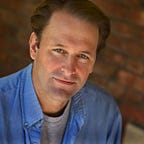The Zen of the Braise
More Than Just Cooking
Last February, I published a book called How To Braise, a short book exploring this most transformative of our cooking methods. People often ask me what my favorite thing to cook is and almost always my response is “I like to braise.” Unless it’s summer time, when I like to grill, which has it’s own unique pleasures.
Why braise? Because it most fully defines cooking: it transforms food. When I grill a steak, or pan-fry a pork chop, all I’m really doing is heating the food. It is what it began as, only it’s hotter. Steak is ultimately a heat-and-serve item. But to braise is to take, say, a sinewy tough, unappealing lamb shank, and through your powers as a cook, turn it into something tender and succulent.
Braise is technically defined as a two-part process: meat is first seared in high, dry heat, then cooked low and slow in moist heat.
But there’s more to braising than simply cooking. Because braising has more than one stage, and requires hours rather than minutes to complete, the technique offers many opportunities to be present in the cooking, more so than in any other, and to take pleasure in your awareness of the cooking.
Back when he wrote his Minimalist column, Mark Bittman noted that you don’t have to sear, say, cubes of beef for a beef stew. And he’s right. (You don’t have to do anything if you don’t want in the kitchen.) If I’m behind schedule, I’ll forgo that step, which browns the meat, adding flavor, and prevents juices from leaking out and coagulating in your otherwise lovely braising liquid.
But it wasn’t until I discussed braising with Thomas Keller, in collaboration for his first cookbook, that I considered it more deeply. “That smell,” Thomas said, his eyes alight. “The aroma of floured meat hitting the hot fat. I love that.”
I did, too. But I’d never stopped to think about it. Appreciate it. There is pleasure to be had taking in the aroma of floured meat sizzling in hot fat. It smells good. And good smells actually relax us.
Our sense of smell resides in the olfactory bulbs of the limbic system, that ancient instinctive center of our brain. The limbic system controls our fight-or-flight response to stress, as well as our emotions; it’s responsible for long-term memory (the reason that smell, more than other senses, can return us to the emotional past) and affects our behavior and motivation. Smell, thus, impacts our parasympathetic nervous system, the nerves responsible for all involuntary bodily activity, including the mechanisms that put us at ease.
I know for a fact that bills are easier to pay when short ribs are braising in the oven.
When you braise and fill the house with delicious aromas, you feel relaxed. It’s something to be aware of, this particular impact of cooking food at home. This is why we exclaim, almost involuntarily, “It smells good in here,” when we walk into a home where something delicious is cooking. We get an immediate and welcome stress reduction. Something good is about to happen.
Other pleasure are available as well. When you remove your pot from the oven after it has filled your house with relaxing deliciousness for hours, regard the golden layer of fat that has settled at the top — it is a beautiful sight. A sight that cooks have been regarding for millennia. And when we take the time to appreciate that sight we connect in a way with all the other cooks who haves stopped to appreciate the sight.
And of course, the eating. The deep, rich flavors, the nourishing sauce you’ve created, offset by a spicy couscous for the lamb (above) or some buttered egg noodles for the braised beef.
All of which is why I answer, I like to braise. Its impact extends to everyone in the home during the cooking, throughout the eating, and the satisfaction of having enjoyed a health-giving meal with people you care about.
Michael Ruhlman is the author of more than twenty books, most recently Ruhlman’s How To Braise, from which this essay is adapted. For more, go to ruhlman.com.
